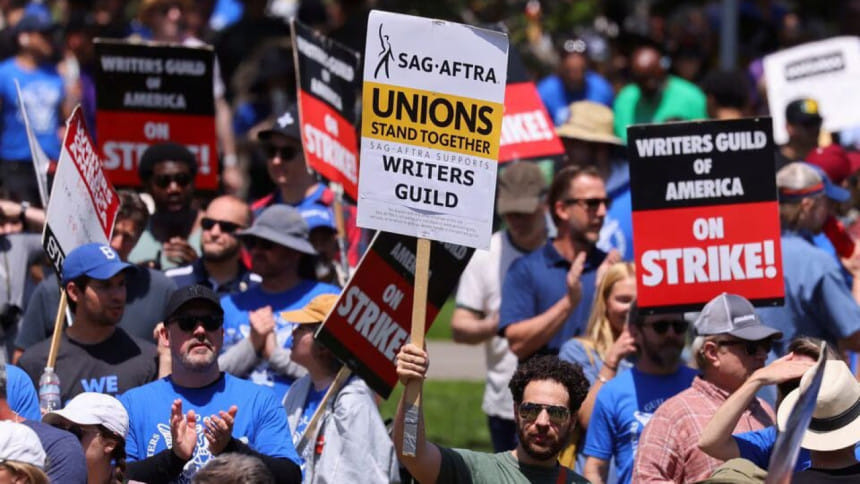Hollywood studios racing to avoid actors' strike at midnight

Hollywood's major film and television studios and the union representing 160,000 actors were engaged in last-ditch talks on Wednesday ahead of a midnight deadline to try and avoid a second labor strike in the entertainment business.
SAG-AFTRA, Hollywood's largest union, is demanding higher compensation in the streaming TV era plus safeguards around the use of artificial intelligence (AI). Members have authorized a strike if negotiators cannot reach a deal, and A-list stars including Jennifer Lawrence and Meryl Streep have said they are ready to walk off the job.
They would join about 11,500 members of the Writers Guild of America (WGA), who went on strike in early May. That walkout sent late-night television talk shows into endless reruns and disrupted most production for the fall TV season and the filming of some big-budget movies.
A strike by SAG-AFTRA would force more sets to shut down and pile pressure on studios to find a resolution.
Late on Tuesday, SAG-AFRA negotiators agreed to a studio request to call in a federal mediator. But the union said studio representatives had "abused our trust" with leaks to the media and it would not budge from the Wednesday night deadline.
Hollywood has not faced a double strike since 1960, when members of the WGA and the Screen Actors Guild called work stoppages in a fight over residuals from films sold to TV networks.
Today, the unions are battling Netflix, Walt Disney and other companies over base pay and residuals from streaming services and other issues including the use of generative AI. Actors want assurances that their digital images will not be used without their permission.
Negotiations were taking place at a difficult time for media companies that have spend billions of dollars on programming to try and attract new streaming customers.
Disney, Comcast Corp's NBCUniversal and Paramount Global each lost hundreds of millions of dollars from streaming in the most recent quarter. At the same time, the rise of online video has eroded television ad revenue as traditional TV audiences shrink.
The Alliance of Motion Picture and Television Producers (AMPTP), which negotiates on behalf of the studios, has declined to comment about its talks with SAG-AFTRA.
With the writers, the AMPTP said it had offered "generous" pay increases but could not agree to all of the writers' demands. The studios and the WGA have not held talks since the writers' strike began on May 2.

 For all latest news, follow The Daily Star's Google News channel.
For all latest news, follow The Daily Star's Google News channel. 










Comments